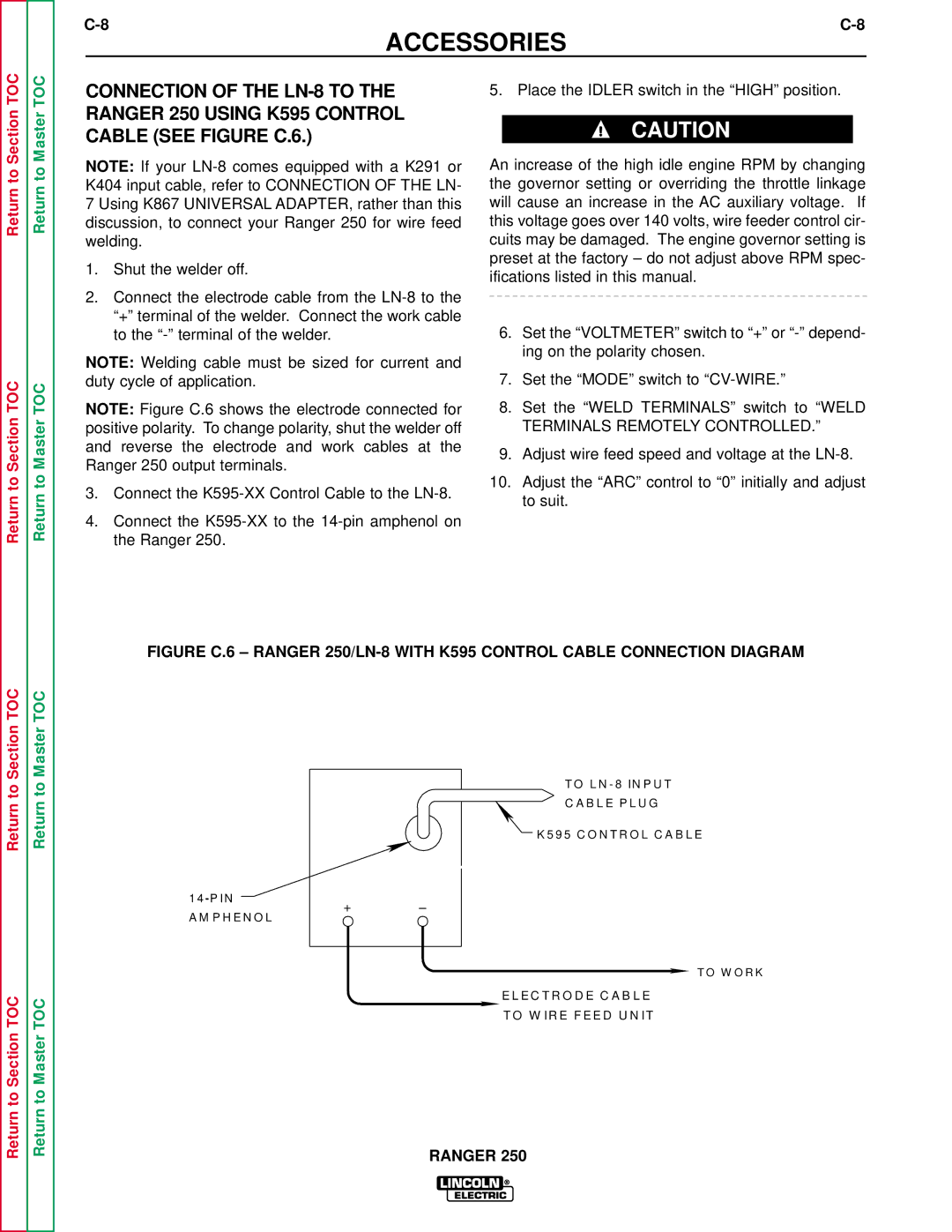
ACCESSORIES
Return to Section TOC
Return to Section TOC
CONNECTION OF THE
NOTE: If your
1.Shut the welder off.
2.Connect the electrode cable from the
NOTE: Welding cable must be sized for current and duty cycle of application.
NOTE: Figure C.6 shows the electrode connected for positive polarity. To change polarity, shut the welder off and reverse the electrode and work cables at the Ranger 250 output terminals.
3.Connect the
4.Connect the
5. Place the IDLER switch in the “HIGH” position.
CAUTION
An increase of the high idle engine RPM by changing the governor setting or overriding the throttle linkage will cause an increase in the AC auxiliary voltage. If this voltage goes over 140 volts, wire feeder control cir- cuits may be damaged. The engine governor setting is preset at the factory – do not adjust above RPM spec- ifications listed in this manual.
6.Set the “VOLTMETER” switch to “+” or
7.Set the “MODE” switch to
8.Set the “WELD TERMINALS” switch to “WELD
TERMINALS REMOTELY CONTROLLED.”
9.Adjust wire feed speed and voltage at the
10.Adjust the “ARC” control to “0” initially and adjust to suit.
Return to Section TOC
Return to Section TOC
Return to Master TOC
Return to Master TOC
Return to Master TOC
Return to Master TOC
FIGURE C.6 – RANGER 250/LN-8 WITH K595 CONTROL CABLE CONNECTION DIAGRAM
TO
CABLE PLUG
K595 CONTROL CABLE
14 PIN |
|
| |
- | + | – | |
AMPHENOL | |||
|
|
![]() TO WORK
TO WORK
ELECTRODE CABLE
TO WIRE FEED UNIT
